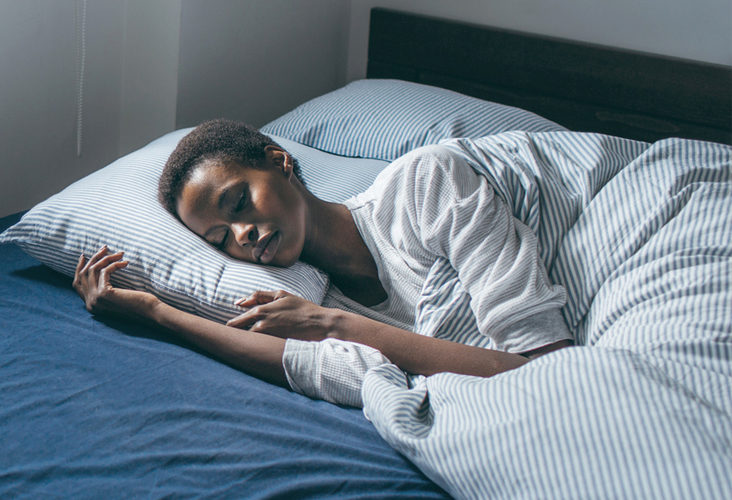It isn’t a secret that when we don’t get enough sleep that we wake up quite moody, unproductive and certainly not ready to tackle the day ahead. Our bodies take those much needed eight to nine hours to essentially stabilise everything from our hormones to blood pressure and when we skip out on a good night’s sleep, we’re upsetting just about every essential bodily process there is.
With that being said, if you’re intrigued by just how important sleeping is for your day, we have some pointers for you below, as well as some tips to improve your chances of getting a good night’s sleep.
Hunger Control and Regulation
Off the top, one point that makes sleeping so important is that it is greatly helpful in the management of our weight.
When we sleep, our bodies work to stabilise the hormones that control hunger and cravings. That in turn allows our bodies to operate effectively throughout the day and not crave sugary and fatty foods to give our tired, sleep deprived bodies some last minute energy to finish off the day at work.
Added to this, studies have shown that people who lack a good night’s sleep on a routine basis are up to 89 per cent more likely to become obese. This also ties in with the fact that those with sleep apnea, a sleeping disorder affecting their breathing, which can be remedied by a CPAP machine, are more likely to suffer from unintended weight gain.
Leaps and Bounds in Productivity and Concentration
Another key factor in getting a good night’s sleep is your ability to work productively and focus more effectively.
When we’ve had a good night’s sleep, we’re able to work for longer, get more done and also focus much more effectively on any given task than when we aren’t well-slept. Some sleep research studies have linked sleep deprivation to an uptick in accidents at work by around 36 per cent, which can be catastrophic depending on the roles within which you work.
For example, the risks of a car accident are greatly increased when those at the wheel haven’t had adequate sleep and thus going to work will put themselves and others at risk when driving.

More Active and Happy Bodies
A more well-known positive side effect of sleep is essentially having more energy.
When we pair a well-rested body’s ability to focus and make better decisions and the increased energy that comes with that, you’re on the way to essentially being more active and better able to complete physically demanding tasks.
Athletes who sleep for an average of eight to nine hours, for example, are profoundly more effective in their training sessions and see far increased performance when compared to those who haven’t slept well enough, or slept at all.
To end, accident prevention is also increased in well-rested athletes. There is shown to be a reduced chance of trips, falls and other accidents on the field when runners and other athletes are well-rested.
A Reduction of Stroke and Heart Attack Risk
Arguably one of the most important things that come with a good night’s sleep is a reduced risk of early death.
A rather shocking statistic is that without proper sleep, we risk early death in the most literal sense. People who are seen to have slept at less than seven to nine hours per night are at higher risk of death on many fronts from heart attack, accident and more.
That in mind, sleeping is important to increase your longevity and increase your lifespan. You’re going to find that a happier, more active and longer life is on the cards when your sleep is hitting those eight to nine hours as opposed to a poor quality sleep that lasts only three hours, for example.
Stabilises Mental Health Issues
A final and somewhat unexpected side effect of a good night’s sleep is the reduction of mental health problems such as depression and anxiety.
Countless research studies have pointed to a good night’s sleep as almost a form of treatment for issues such as depression and anxiety. With a full night of quality sleep, either assisted by a CPAP machine or a quality mattress, sleepers are able to better get a handle of some of the more common and detrimental mental health issues.
In fact, up to 90 per cent of people in research studies complain of poor quality sleep. This is a staggering stat that ties sleep directly to issues such as depression.
Conclusion
With all of those points above, it is crystal clear to see that sleep is tied to just about everything in our life, and given that we spend around one third of our lives asleep, it is good to keep in mind that this pivotal activity should take priority for many of us.




